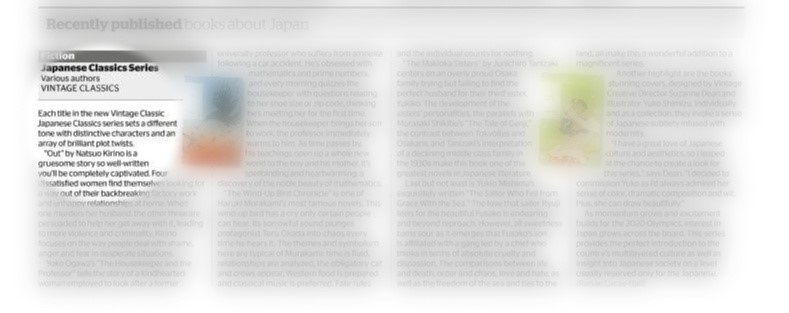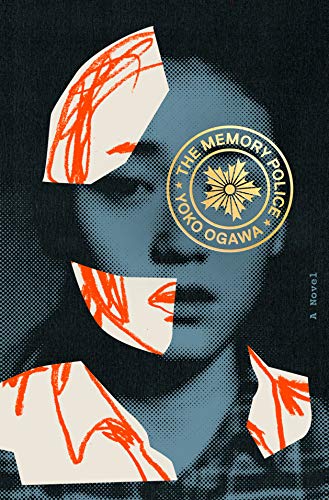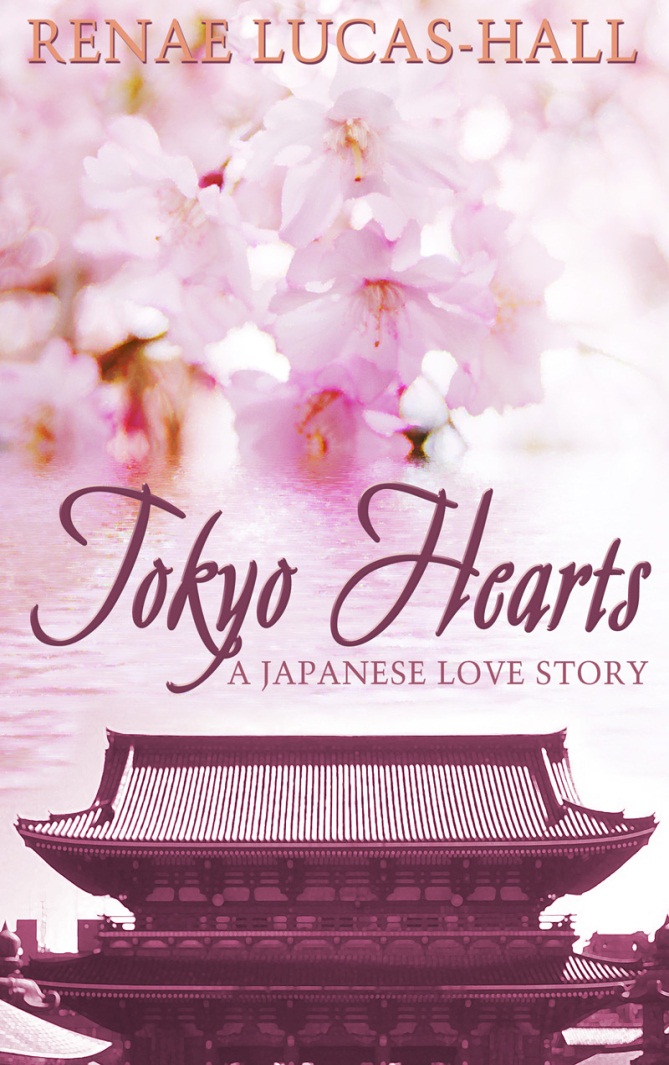Most people travelling to Japan want to experience the real deal but what is one of the best ways to find out what Japanese people are really like?
All you have to do is eat at an izakaya, a type of Japanese gastropub!
The 18 delicious dishes you can try at an izakaya are at the end of this guide so if you’ve been to an izakaya and you know the drill then scroll down to see all the dishes and food images.
If you live in Japan, you’re already fully aware of the fact Japanese people are difficult to get to know, especially in the big cities like Tokyo, Osaka, and Kyoto, and they are on the most part orderly, restrained, polite, patient, and usually perfectionists during the day (well, most of the day when they’re not squeezing themselves into packed trains 😊). But when night falls and the working day finishes, thousands of Japanese people go out for drinks and a tasty meal with colleagues, clients, and friends and an izakaya is a popular choice for delicious food, cheap drinks, and lots of laughs.
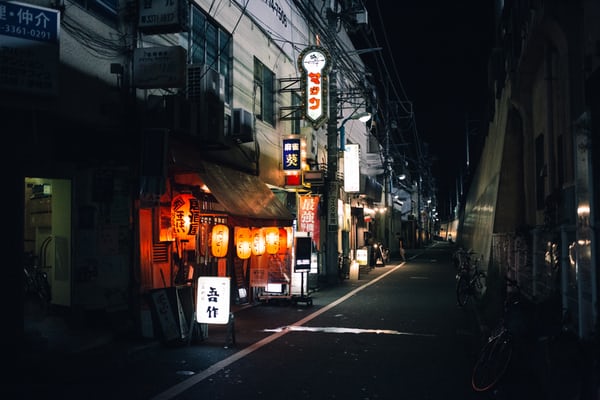
There are over 100,000 izakaya in Japan and they can get a bit rowdy but sometimes people start chatting with strangers sitting next to them and everyone is usually in a good mood so this is an ideal place to dine if you’re visiting Japan for the first time and you want to get to know Japanese people a bit better without breaking the bank. It’s not a place to get messy though. Don’t get too raucous and remember everyone is still respectful, even when they’re highly intoxicated.
It’s easy to spot an izakaya because they often have a red lantern on the outside. Inside, it’s common to see a straight counter where you can sit and chat with the proprietor and staff, and behind this about five or six tables for couples and groups to sit down. Some izakaya also have a u-shaped counter which is popular with anyone eating alone because you can easily get the staff members’ attention and watch everyone around you without being conspicuous.
In some izakaya you’ll be able to sit on tatami mats or dine from low tables and more recently private rooms have become available in some establishments, catering for two or three people or groups because they’ve recognized the fact some people want to speak privately and don’t want to be overheard. Sometimes the tables and chairs even spill out onto the footpaths and this is the perfect place to sit on warmer nights. If you’re in the mood to eat or drink a lot then look out for the all you can eat (tabe-hōdai) and the all you can drink (nomi-hōdai) izakaya.

A lot of izakaya have an intimate feel and the food can be seasonal and usually tastes homemade so you could describe these restaurants as quintessentially Japanese. Izakaya remind the locals of the post-war years and the Showa era.

At some izakaya each dish is written in Japanese on strips of paper or wooden boards above the counter but don’t worry if you can’t speak the language because many izakaya now have digital menus with an English language option and if they don’t just check out my list of delicious dishes below and ask for those! Also, don’t be afraid to ask other patrons if they speak English so they can help you. Many Japanese people, especially in the big cities, speak at least a little English and they’ll be more than happy to offer some suggestions.
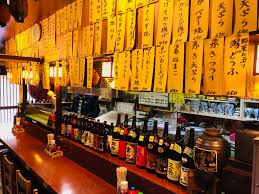
The word “izakaya” is made up of these kanji or Japanese characters: 居酒屋.
居 means “stay” or “dwelling”, 酒 means “alcohol,” and 屋 means “room” or “shop” so you can see how the word izakaya was formed.
You may have to take off your shoes at the entrance to an izakaya and put them in a locker so make sure you’re always wearing clean socks with no holes when you’re in Japan. The first thing you’re most likely to be asked before you sit down is how many people are in your party and you can tell them this by indicating the answer with your fingers just like Japanese people do. If there are a lot of people say the number in English slowly and you should be understood.
When you sit down you may be given an oshibori, a wet towel you unroll to clean your hands. This towel is cold in summer and warm in winter. You’ll also be served an appetizer or otōshi お通し(also called tsukidashi 突き出し in Kansai, West Japan). Edamame (boiled or steamed soybeans served salted) are a popular appetizer but you could also get a house special. You should never tip in Japan but you may be asked to pay a table charge called otōshidai (お通し代) or sekiryō (席料) to cover the cost of the appetizer and service. If it’s not busy at the izakaya then stay as long as you want but don’t stay longer than two hours if other people are waiting for a table.


If you want to order just say “Sumimasen” (Excuse me) really loudly. I’ll break that into syllables for you: “Su-mi-ma-sen”. When you’ve had a few drinks, you’ll find this easier to do. You’ll also hear everyone else saying it when they want to order.
You can enjoy all sorts of alcoholic drinks at an izakaya. This includes Western drinks like beer, wine, cocktails, and Whisky but you should try some of the Japanese drinks like sake (served warm in winter and cold in summer), umeshu (plum wine), chuhai (a mixture of shōchū, a Japanese distilled beverage with an alcohol content of about 25%, and soda water. A lemon or lime wedge is added for flavour), or a sour mix with fruit juices added to shōchū.
It’s the custom to pour drinks for each other so give it a go! Don’t be surprised if the waitress pours your Japanese sake into a glass balancing in a wooden box. She’ll fill it to the brim until it flows over into the wooden box and this symbolizes prosperity and generosity. Take a few sips from the glass and pour the sake in the wooden box back into the glass for good manners. Don’t drink from the wooden box.

Check out the 18 delicious dishes below. These suggestions appear on most izakaya menus so savor each dish and fill up your belly until you’re completely satisfied. When you’re ready to pay here’s what you need to say when you have to ask for the bill: Call out “Sumimasen” (Excuse me) just like you did when you wanted to order and “Okanjō onegai shimasu!” お勘定お願いします (“Cheque please!”).
An izakaya is always very inviting. You won’t feel uncomfortable eating here, even if you’re by yourself. You’ll also discover the true feeling of omotenashi or Japanese hospitality here – not just from the people working at the izakaya but also the other customers who always make sure everyone else feels welcome, including you. It really is one of the best places to see the real Japan, a great place to people watch, and you’ll learn a lot about the culture and the Japanese people here.
Some izakaya offer entertainment with live music, others offer rakugo (traditional storytelling) performances to watch while you eat, some serve regional food, some are relaxed, and some are formal and a lot more expensive. You can usually get a feel for what kind of place it is and whether it’s a pricey establishment just by looking through the window or past the entrance.
TimeOut Tokyo has a great list of places where you can find lots of popular izakaya in Omoide Yokocho in Shinjuku and Nonbei Yokocho in Shibuya.
You have a huge choice of food in many izakaya and it’s best to order a lot of small dishes just like Spanish tapas. Some of these gastropubs only serve one specialty food like yakitori (grilled chicken on skewers) but most izakaya offer a wide variety of dishes. Below is a list of my favourites. All of these dishes should appeal to most Westerners even if they haven’t eaten a lot of Japanese food in the past.
1. Yakitori (焼き鳥) — grilled chicken on skewers

2. Tempura (天ぷら) — seafood or vegetables that have been lightly battered and deep fried
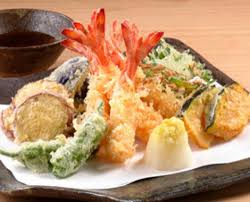
3. Yakisoba (焼きそば) — Japanese noodle stir-fry dish

4. Sashimi (刺身) — thinly sliced fresh raw fish or meat often eaten with soy sauce and a little bit of wasabi horseradish

5. Korokke (コロッケ) — deep-fried dish originally related to the croquette, a French dish

6. Karaage (から揚げ) — Chinese inspired fried chicken. Really delicious if you squeeze a dash of lemon juice on this and dip it in Kewpie mayonnaise. A very popular dish with Westerners

7. Gyōza (餃子) — dumplings filled with ground meat and vegetables and wrapped in a thin dough

8. Tamagoyaki (玉子焼き) — a sweetened Japanese rolled egg omelette

9. Agedashi dōfu (揚げ出し豆腐) — crispy deep fried tofu served in a tsuyu sauce with grated radish, spring onion, and/or bonito flakes as toppings

10. Horenso no goma-ae (ほうれん草の胡麻和え) — Japanese spinach salad with sesame dressing

11. Yakizakana (焼き魚 or やきざかな) — grilled fish

12. Nasu Dengaku (なす でんがく) — miso glazed eggplant/aubergine

13. Tsukemono (漬物) — pickles
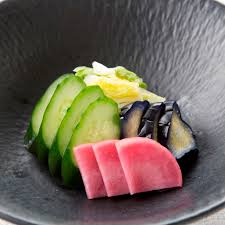
14. Tebasaki (手羽先) — deep-fried chicken wingtips with a spicy glaze, popular in Nagoya

15. Gratin (グラタン) — a creamy dish topped with cheese and breadcrumbs that originated in France

16. Pizza (ピザ) — you know this one, don’t you!

17. Ochazuke (お茶漬け) — a simple rice dish which combines green tea (ocha), steamed rice, and an assortment of savory ingredients. Usually served at the end of the izakaya meal

18. Matcha aisu (抹茶アイスクリーム) — green tea ice-cream. Don’t knock it until you try it. It’s really refreshing at the end of a big dinner.











